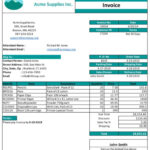Bookkeeping
Cloud Accounting: Benefits, Challenges, and How It Works

The information can be updated and accessed from any computer anywhere in the world, offering true flexibility in a highly-connected world. In some instances, you won’t need to install the software on your computer and can access it via web browsers.

You can reduce the chances of data breaches and manipulation with cloud accounting services. Your business needs will change with time; what if you need extra resources to cater to your accounting demands? Growing businesses usually accommodate more users and can expand their operations. The financial information you upload to the cloud will stay safe from cybercriminals. No understanding current assets on the balance sheet one – except the authorized personnel – can access or manipulate the data. For instance, if you lose certain data files on Premises, you can re-download them from the cloud.
Automatic Updates:
Using cloud accounting software can allow businesses to enjoy accurate and timely data insights. Companies can enjoy a real-time view of their financial positions, highlighting weak zones and vulnerabilities. A current view of your financial position puts you in a better position to make informed decisions and drive your business along the right path.
Make Collaboration Easier
- This is particularly beneficial for growing companies that need to expand their accounting capabilities without significant investments in new infrastructure.
- Moving this data into the software will give you an easier real-time view of your finances without flipping through papers.
- Businesses can store anything from proposals and quotes to accounts payable and receivable files.
Today’s digital world will force companies to use advanced tools and software for managing financial activities and transactions. Cloud accounting systems often comply with industry standards and financial regulations. They offer features such as tax reporting and automated compliance checks to help businesses meet their legal obligations. Cloud-based software companies ensure that the security and privacy of data about you and your organization is always airtight. If you a complete guide to saas accounting use online banking, then you’re already primed to use cloud accounting. Small business accounting software that’s not available via the cloud can be tedious.
Users in areas with unstable internet access may encounter disruptions, limiting their ability to obtain critical financial data and complete necessary accounting procedures. Cloud accounting has emerged as a game changer for businesses, providing various benefits in this world of technology and innovation. Let’s look at the main advantages and disadvantages of cloud accounting. Anyone with a device and internet connection (with credentials) can access the cloud-stored data and download it for business purposes.
Information security is probably the biggest concern of almost every business. Protecting the sensitive information is crucial to keep the customers’ trust intact. A breach of information could be catastrophic; you can experience financial and moral losses in the industry. Using cloud accounting can provide you with improved data security as no one can breach the cloud security protocols. Multiple users from your accounting team can access data files on the cloud and collaborate simultaneously. Businesses with accounting team members scattered across the country can benefit from this feature.
Time and cost savings are always achieved by having everyone on the same page. Cloud-based accounting works by using secure web-based software to help streamline business processes. Small business owners and their finance teams can access all key data from their locations, making collaboration and financial reporting easier.
Streamlined Collaboration
Regular data backups ensure business continuity even in the event of a disaster. The future of cloud accounting looks promising, with continuous advancements in technology and increasing adoption by businesses of all sizes. According to Gartner, the global public cloud services market is expected to grow by 23.1% in 2021, reaching $332.3 billion. As more businesses recognize the benefits of cloud accounting, its adoption is likely to accelerate. Software updates can be developed and delivered faster and more easily in the cloud.
Kristen Slavin is a CPA with 16 years of experience, specializing in accounting, bookkeeping, and tax services for small businesses. A member of the CPA Association of BC, she also holds a Master’s Degree in Business Administration from Simon Fraser University. In her spare time, Kristen enjoys camping, hiking, and road tripping with her husband and two children.
For example, if you have any employee processing payroll, you can give them access just to payroll without them being able to access bank accounts or financial information. With a cloud-based software program, you can access your financial data anytime, anywhere. You don’t need to worry about wasting time with downloads and updates that come with regular software public accounting vs private accounting because the cloud is hosted remotely. A software provider can even offer a mobile app, making it easier to access your numbers while you’re on the go.
